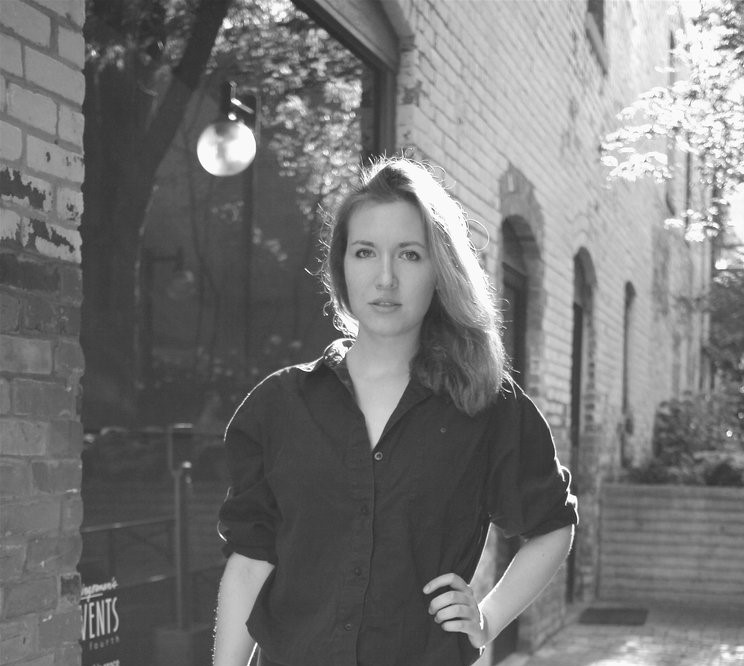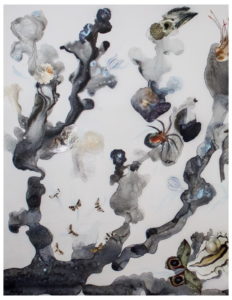
Adding to ROCO’s ever-growing body of commissions, Saturday’s ROCO Unchambered: Force of Nature features the world premiere of Sapien by Stephanie Ann Boyd, for flute, oboe, cello and piano.
In this ROCOInsider, we talked to Stephanie about the creation of her piece, how it ties into the program’s theme, and why nature is a driving force in her work!
You worked closely with Brook Ferguson, principal flutist and curator of this program, on this commission – what was the spark for the idea of Sapien?
Brook and I first talked over lunch about the theme of the concert – that it would be nature-inspired and would include George Crumb’s Vox Balaenae. We also discussed ROCO’s season theme of “Games People Play”, and Brook’s interest in exploring mankind’s relationship with the cosmos. That immediately got me thinking. Later we all had dinner, with Brook’s boyfriend Tom who works as an evolutionary biologist, and all evening we talked about biology, the evolution of humanity – then the idea for the piece exploded to become much more concrete.
The piece covers a vast expanse of time in the universe – over just 14 minutes! How did you approach distilling this down, musically?
Brook and I first talked about these very specific moments in time, and the idea of stasis in our relationship with the cosmos. And the thought of starting with the very beginning, with just light and darkness, and creating a movement just from those colors, and then expanding the palette so that it is very much a journey over the entire 14 minutes – ending finally with a little bit of sparkle, as we look at the excitement and possibilities ahead in the discovery of the God particle.
The third movement “Evolving” features subtitles referencing several specific periods in the development of life on Earth. Tell us about all that happens here.
It’s a lot in a short amount of time – each of the sections is just about 40 seconds long. But the whole movement has a unifying chant-like theme which persists in every section, and each instrument gets to take a turn with the main theme, which has a hint of Dies Irae. The movement also involves a lot of atmospheric writing, and some extended techniques, so you’re really getting the sound world of each of these moments in time (or a fictionalized sound world, at least!)

Artwork by Sasha Parfenova,
for the cover of Sapien
Have you ever written any other works for this specific instrumentation, of flute, oboe, cello and piano?
I have not! Brook really wanted to involve everyone who was on the program, so that determined the instrumentation. It’s cool because you get the high part, and the melodic part of the tessitura, and instruments which can play many notes at once through the cello and piano. While it does pose a compositional challenge, creativity can come from constraint. So it was actually very fun to write, especially knowing who I was writing for. In fact, my very favorite part of the whole piece is the 3rd movement variation that I wrote for flute, for Brook, so I hope she likes it!
Your catalog of work and style really embraces nature – how does it inspire your writing?
What I want to write about and transport people to, are increasingly those special moments of being in nature, being in touch with the simple and natural. Music is the one art which I feel can completely distill emotion. And also, I’m from the woods, that’s where I grew up and that’s what I know. As a composer, my job is to transport you physically and mentally, and this is the best way I know how to do it, to show the flavor and beauty of nature in my writing. If the audience doesn’t get goosebumps – then I haven’t done my job.
ROCO gives the world premiere of Stephanie Ann Boyd’s Sapien, for quartet – in ROCO Unchambered: Force of Nature, Saturday, December 8, 2018, 5:00 pm, at MATCH. Tickets available at roco.org, or at the door.

Leave A Reply